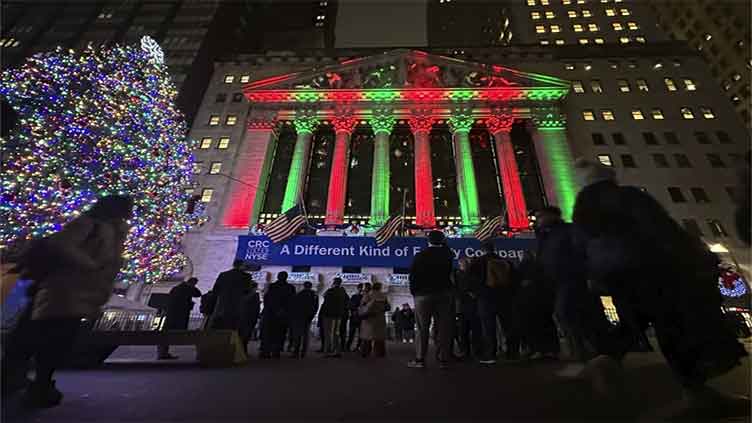Wall Street edges back from its record

World
Wall Street edges back from its record
NEW YORK (AP) — U.S. stock indexes are edging lower in a relatively quiet Wednesday on Wall Street.
The S&P 500 was down 0.2%, a day after setting an all-time high. The Dow Jones Industrial Average was down 163 points, or 0.5%, as of 9:35 a.m. Eastern time, and the Nasdaq composite was 0.2% lower.
Celanese helped pull the market lower and tumbled 20% even though the chemical company reported profit for the end of 2024 that topped analysts’ expectations. CEO Scott Richardson warned that it saw “demand deterioration that gave no sign of easing” during the last three months of the year, and the company expects weakness to continue for such core markets as automotive, construction and paints.
The stock of zero-emissions vehicle maker Nikola plunged 45.4% after it filed for Chapter 11 bankruptcy protection. The company said it will try to sell off its assets and wind down its business.
The loss for Nikola could be a gain for rivals selling their own low- or zero-emission vehicles. Elon Musk’s Tesla rose 1% and was one of the strongest forces pushing upward on the S&P 500.
Toll Brothers, meanwhile, fell 6.8% after the homebuilder reported a weaker profit for the latest quarter than analysts expected. CEO Douglas Yearley Jr. said this spring selling season has seen healthy demand so far for homes at the higher end of the price spectrum, but “affordability constraints” are hurting sales at the lower end.
High mortgage rates are making it difficult for some potential homebuyers to afford a house, even though the Federal Reserve began cutting its main interest rate in September in order to make things easier for the economy.
Mortgage rates have followed the trend of longer-term Treasury yields, which have remained relatively high in part because the U.S. economy has remained remarkably solid and because inflation hasn’t eased as much as hoped.
Tariffs threatened by President Donald Trump, along with other policies that could put upward pressure on inflation, have also caused some sharp swings for yields in the bond market.
The yield on the 10-year Treasury stayed relatively calm Wednesday, ticking up to 4.56% from 4.55% late Tuesday. It was below 3.70% as recently as September and approaching 4.80% within the past few weeks.
Later on Wednesday, the Fed will release the minutes from its late January meeting, when it left its benchmark interest rate alone after cutting it at its previous three meetings. The Fed has signaled it may make fewer cuts this year than it earlier expected, in part because of worries that inflation will remain stubbornly above its 2% target.
Cutting rates can boost the economy and juice prices for investments, but they can also give inflation more fuel.
In stock markets abroad, London’s FTSE 100 fell 0.7% after a report showed U.K. inflation accelerated to a 10-month high. That could put pressure on the Bank of England, which had been cutting interest rates to invigorate its tepid economy.
Indexes fell more than 1% in other European markets, including in Paris and Frankfurt, after finishing mixed across Asia. South Korea’s Kospi jumped 1.7%, while Japan’s Nikei 225 slipped 0.3%.


